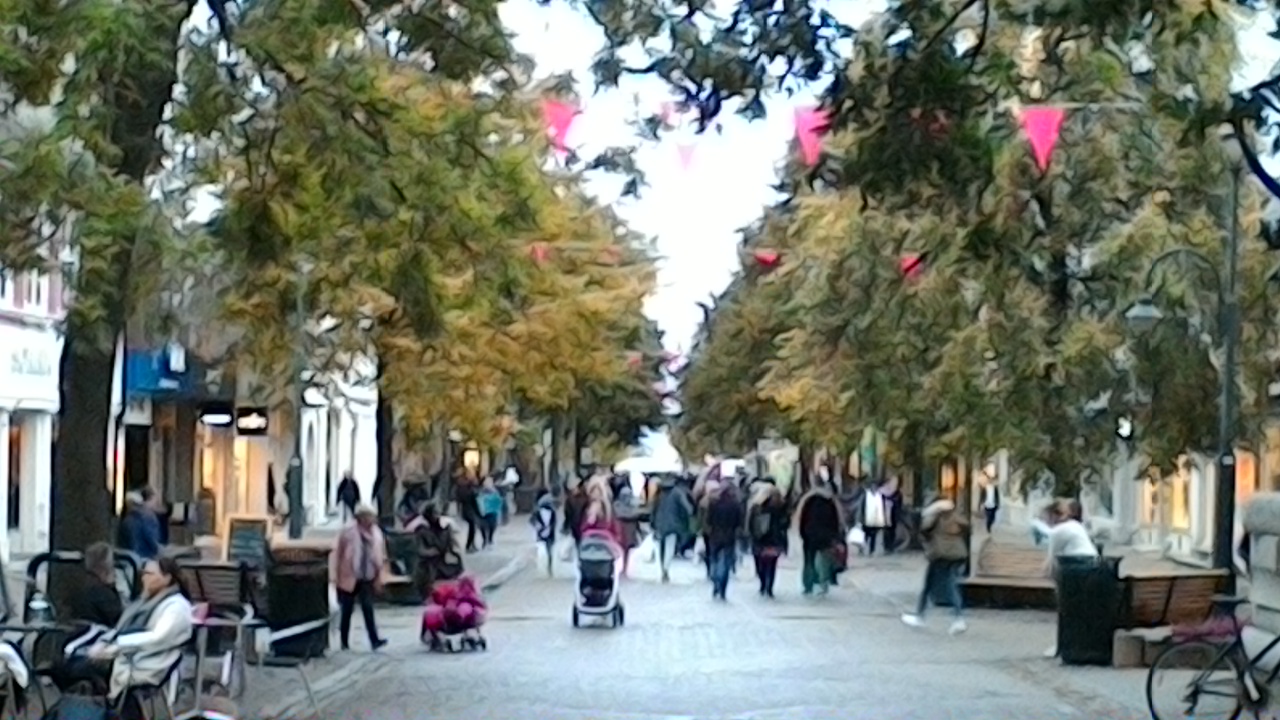Finding out more about Trondheim’s “ADHD schools” providing information and support to young adults.
When a strategy doesn’t work, how many times does it have to fail before you make a change, asks Bjørn Gjervan?
“Something doesn’t have to be clinical, to have an effect,” says Bjørn Gjervan over a cup of coffee. “I describe ADHD, what goes wrong and why. And then, say that it isn’t the disaster you think it is.”
Bjørn is involved in developing and running the “ADHD schools” that provide information and support to adults across the Trondelag region of Norway. Most of the people who join the groups are aged 18-30.
“Most of these young people, they start to believe that they are stupid. And that’s bad,” he says. “So I ask them, why do you continue to try solving the problem in the same way when you know you won’t succeed? Could we make an ADHD way of dealing with things? Adaptive strategies. That’s what I work with. It gives them a chance to succeed, without having to try and be like everybody else.”
Originally a social worker, Bjørn became interested in ADHD when the condition began to be better recognised in the 1990s. He returned to university and took a master’s degree in psychology, followed by a PhD. Today he’s a researcher and therapist, who retains a strong commitment to making a tangible difference in peoples’ lives. The important thing, he says, is to pass on the knowledge and skills that equip and empower people to manage their own everyday challenges.
It all starts with knowing and understanding the condition.
“That is very dependent on understanding what happens in a simple way. You have many parts in your brain, like people calling each other on a phone network, telling each other what to do. But if they don’t take the call, the message isn’t going to get through and you can’t act on it.”
Not a bad description of what happens with ADHD. Developing metaphors, says Bjørn, is helpful. It’s often acceptance and practical common sense that make the difference.
“You’re not wrong, you’re just different, so of course you have to do things differently to achieve the same thing,” he explains. “Everyone has learned about how things are to be done and you tried to do it too. But you can’t, because you have ADHD. You’ve got to do it the ADHD way. That’s what psychoeducation is about, knowing what goes wrong and why, so you can do it differently.”
With understanding comes control and a greater degree of confidence.
The ADHD schools meet over 12 weekly sessions and are very informal and peer led, with input from therapists like Bjørn and support from a nurse or health worker. Participants are referred by their therapist but can opt in or out as they choose. The group aspect is important, as they are taking control over their own lives and learning – people become a resource for each other, and members remain in contact outside the group through Facebook and email. Sometimes it’s the first time they will have met others with the same issues and difficulties as themselves. Discussions are wide ranging, and there can be a lot of laughter. Weekly feedback shapes the sessions: this can be brutally honest. But by the end of the course, the majority of people say they have new insights and strategies they can put to use to take more control over their own behaviour.
“I’ve seen large guys covered with tattoos start to cry,” says Bjørn. “Maybe you come home, you’re angry, you walk into the house and say or do things to the one you love most in the world and how does that feel? And they start to cry, because they’ve done it so many times. But that can change. They can learn strategies to do things differently and make life how they want it.”
I ask if the groups accept people with a history of substance abuse.
“Yes,” he says unequivocally. “They are just as unhappy.”
The hope is that by gaining more understanding, people will be better placed to accept themselves and turn their lives around, including improving work prospects. Not surprisingly, unemployment among people with ADHD in Norway is well above the national average.
“The difficulties aren’t related to ability,” says Bjørn. “It’s the social element that’s the barrier. Most of the patients that participate in the groups, they are razor sharp. No problem, very good minds.”
For anyone who lives with or cares for someone with a barrier to learning, that won’t come as a surprise. But it’s a strong message for everyone – teachers, health professionals and the wider community. Because essentially, it’s a challenge for all of us. It’s not the individual with ADHD that’s the problem, nor even ADHD itself. WE are the problem, unless we can find a way to break down the social barriers that bar capable, intelligent people from our workplaces and social spaces.
“It’s not sophisticated at all, it’s very simple and practical,” says Bjørn. “Be a bit nice to yourself, it’s all right if you don’t do something in that way or that fast, train to be your own friend. Be more flexible, more adaptable. Because no one is completely without deficits. None of us.”
I was talking to Bjørn at the Dragvoll Campus of NTNU (the Norwegian University of Science and Technology) in Trondheim


Leave a Reply